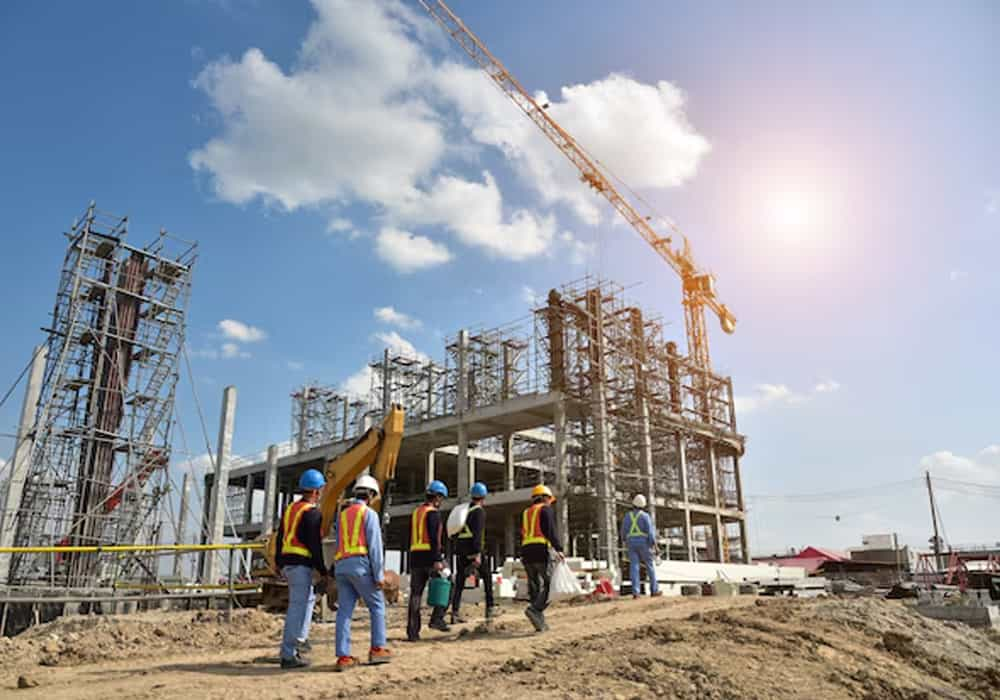
Healthcare facilities are crucial in maintaining the health of society. With the increased demand for medical care and the development of urban infrastructure in India, the demand for advanced healthcare facilities is also increasing. From hospitals to specialty clinics, healthcare building construction involves meticulous planning, strong engineering, and compliance with strict standards to provide patient safety and care. In this blog, we will explore the significance of healthcare facility construction, the services involved, and how healthcare construction companies in India are addressing the challenges in this fast-growing industry.
The Importance of Healthcare Facility Construction
Healthcare infrastructure is the foundation of any healthcare system. With an increase in population and a need for improved healthcare, there is a need for more developed and specialized healthcare buildings. The following are some reasons why appropriate construction services are essential for healthcare facilities:
1. Patient Care
Proper construction makes sure that hospitals, clinics, and other health facilities are planned to emphasize patient care. These include adequate waiting areas, well-designed room planning, and quick access for emergency cases.
2. Compliance and Safety
Healthcare establishments must comply with many regulatory norms laid down by health and safety authorities. From fire safety and electrical safety to sanitation norms and others, such guidelines must be complied with by construction companies.
3. Technological Incorporation
Healthcare facilities today must incorporate technology. From electrical installations for medical machinery to fiber-optic networks for communication, building structures that will accommodate these technologies is essential.
4. Comfort and Aesthetic Appeal
It is not merely a healthcare setting where treatment happens; a hospital must also provide a comfortable ambiance. Construction services must see to it that medical facilities are pleasant-looking, provide a safe, peaceful, and clean setting for patients as well as healthcare providers.
5. Sustainability
With increased emphasis on sustainability, healthcare construction services also have to adopt green building methods. Energy-efficient building designs, waste management systems, and green materials are key areas of healthcare facility construction in modern times.
Key Construction Services for Healthcare Facilities
While building healthcare buildings in India, it is important to select a contractor who provides a complete range of services. Below is an overview of the major services involved in healthcare building construction:
1. Site Analysis and Preparation
The initial step in healthcare facility building is selecting a proper location and site preparation. The construction firm needs to analyze the site to determine several factors such as:
- Topography: The water table, slope, and general landscape of the site are essential to the structural stability of the building.
- Soil Testing: Soil tests are done prior to construction to make sure the foundation will be stable and secure.
- Accessibility: The site must be readily accessible for both medical staff and patients, including parking lots and emergency access routes.
2. Architectural Design
Healthcare facility design is a matter of great subtlety, balancing functionality and aesthetics. The design has to marry operational effectiveness with patient comfort. Designers of healthcare facilities and architects have to keep in mind the following:
- Room Layouts: Patient rooms, operation theaters, ICUs, and emergency departments need to be optimally designed for movement convenience and medical processes.
- Patient Flow: The building should be designed to enable smooth patient flow from one section to the next (i.e., from outpatient consultation to diagnostic tests and then treatment).
- Regulatory Compliance: Architectural designs need to comply with local and global healthcare building codes, including fire safety, medical waste disposal, and accessibility for disabled individuals.
3. Structural Engineering
Structural engineering plays an important part in the construction of healthcare facilities. Healthcare facilities and hospitals should be constructed using strong structures capable of withstanding natural disasters such as earthquakes and floods, in addition to being able to bear heavy medical devices.
- Foundation and Framing: The healthcare facility foundation is planned based on the type of soil and the building's load-bearing capacities.
- Structural Materials: Durable materials such as steel, reinforced concrete, and others are often used to make long-lasting structures.
- Load Distribution: A properly designed structural system is necessary to distribute the load of the building, including medical equipment, fittings, and staff.
4. MEP (Mechanical, Electrical, Plumbing) Services
Healthcare facilities depend significantly on well-functioning MEP systems to deliver comfort, safety, and operational efficiency. MEP systems need to have high standards of cleanliness and safety.
- Mechanical Systems: Ventilation, air conditioning, and heating systems are vital to providing a comfortable and sterile patient room environment, operation theater environments, and other facilities.
- Electrical Systems: Hospitals need an uninterrupted and reliable power supply. Emergency power systems like generators and UPS systems are also needed to make sure that important systems function when there is a power outage.
- Plumbing Systems: There should be proper plumbing systems in place, such as systems for clean water supply, sewage, medical gases, and drainage.
5. Fire Safety and Emergency Systems
Hospitals and healthcare centers are risky places, so proper fire safety and emergency evacuation systems are essential. This entails:
- Fire Alarms and Detection: Smoke detectors, fire alarms, and sprinkler systems are incorporated within the building design.
- Evacuation Routes: Properly marked evacuation routes, emergency exits, and stairwells are critical to safe evacuation in the event of fire or any other emergency.
- Backup Power Systems: Emergency lights, backup generators, and other vital infrastructure should be operational in the event of power failure.
6. Sustainable and Green Building Practices
Sustainability is the prime focus of construction in the contemporary world of healthcare. Green building services with reduced energy use and environmental footprint are now provided by most construction companies in India. These include:
- Energy-Efficient Designs: Solar panels, LED lighting, and high-efficiency heating, ventilation, and air conditioning systems minimize energy consumption.
- Water Conservation: Rainwater harvesting and water-saving plumbing fixtures lower water usage.
- Waste Management: Proper disposal of waste as part of sustainable waste management keeps medical waste under control.
7. Project Management and Execution
Successful project management of healthcare construction projects means that hospitals and clinics are constructed on schedule, within budget, and to specified standards. The construction firm oversees every aspect of the project, including:
- Procurement: Buying materials and labor.
- Scheduling: That every phase of the project is completed on time.
- Quality Control: Periodic monitoring and quality control measures are enforced during construction.
8. Post-Construction Services
Post the construction of a healthcare facility, post-construction services make certain that the facility continues to remain operational and fully compliant with the operational needs. These include:
- Facility Management: This involves upkeeping the building's MEP systems, maintaining cleanliness, and keeping the healthcare facility running effectively.
- Staff Training: The personnel should be trained for the use of specialized equipment, emergency procedures, and upkeep of the facility.
Challenges in Healthcare Facility Construction in India
Although India's healthcare industry is growing at a fast pace, the development of healthcare facilities frequently encounters a number of challenges:
- Land Acquisition: Land acquisition in urban regions is expensive and time-consuming, making it hard for construction firms to initiate projects.
- Regulatory Compliance: Healthcare facilities have to adhere to stringent regulations related to safety, sanitation, and accessibility. Compliance with these regulations can be difficult.
- Increasing Costs: The costs of construction are rising because raw materials, labor, and inflation are becoming more expensive. Increased costs can affect project schedules and budgets.
- Integration of Technology: Incorporating advanced medical technologies in the building's design involves specific knowledge and planning.
- Shortage of Skilled Labor: The construction industry suffers from a shortage of skilled experts, particularly specialized healthcare construction experts.
Conclusion
Healthcare facility construction in India is an essential aspect of the country's expanding healthcare industry. Through professional construction services, it becomes feasible to construct safe, effective, and technologically equipped healthcare environments that are capable of accommodating the increasing needs of patients. From design and planning to implementation and post-construction services, full-fledged healthcare construction services ensure that the building is not only operational but also sustainable and in line with all regulations.
With the healthcare sector in India expanding, the need for quality healthcare construction is also on the rise. Builders, architects, and project managers are all turning their attention to providing world-class healthcare facilities that ensure patient care and safety, bringing healthcare closer and making it more efficient for all.
Whether you are a healthcare provider planning to increase the size of your facility or a healthcare investor, it is critical to work with seasoned construction services that are well aware of the intricacies involved in healthcare facility construction. By doing this, you will have a healthcare facility that is a state-of-the-art, fully equipped facility catering to the needs of both medical professionals and patients.


